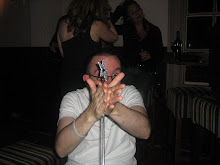 ve. For those who haven't seen the film, no excuse really, but the plot involves the death of newspaper magnate whose last word was simply 'Rosebud'. This triggers newsreel reporter Jerry Thompson to try and discover the significance of this final word. Thompson interviews various people in Kane's wife including his business manager, his butler, his best friend and his second wife as well as reading the memoirs of Kane's former guardian. While Thompson's interviews take place in the present once the interviews start we get flashbacks from Kane's past starting with his childhood where he is taken from his parents to live with banker Walter Thatcher, we see him as a ruthless newspaper owner and also running for governer before a romance with a singer ruins his political career as well as ending his first marriage. His second wife Susan is an aspiring singer but Kane pushes her into singing opera which she is really no good and eventually leaves Kane when she realises that he wants her to be something that she can't be. Obviously the final shot of the film reveals the significance of the word Rosebud and if you're any kind of fan of film then you will already know who or what Rosebud is. But again for those of you who are yet to watch it I won't spoil the surprise.
ve. For those who haven't seen the film, no excuse really, but the plot involves the death of newspaper magnate whose last word was simply 'Rosebud'. This triggers newsreel reporter Jerry Thompson to try and discover the significance of this final word. Thompson interviews various people in Kane's wife including his business manager, his butler, his best friend and his second wife as well as reading the memoirs of Kane's former guardian. While Thompson's interviews take place in the present once the interviews start we get flashbacks from Kane's past starting with his childhood where he is taken from his parents to live with banker Walter Thatcher, we see him as a ruthless newspaper owner and also running for governer before a romance with a singer ruins his political career as well as ending his first marriage. His second wife Susan is an aspiring singer but Kane pushes her into singing opera which she is really no good and eventually leaves Kane when she realises that he wants her to be something that she can't be. Obviously the final shot of the film reveals the significance of the word Rosebud and if you're any kind of fan of film then you will already know who or what Rosebud is. But again for those of you who are yet to watch it I won't spoil the surprise.What I will bang on about however is how revolutionary the film is, while it may not be the best film of all time, it is certainly the best film of it's time. The cinematography is incredibly well executed from the wide angle shots of Kane's Xanadu mansion to the close-ups on character's expressions every scene is given significance. The art direction is also spot-on, every set is given a lot of detail and it really captures the viewer's imagination, again both cinematography and art direction went to How Green was My Valley. All of this is a testament to Orson Welles, whose cinematic vision is realised here he is a presence both as a director and an actor, again he was nominated for both and lost out to John Ford and Gary Cooper respectively. Although I think the Oscars usually get it right, to give Citizen Kane only one Oscar when it is visually spectacular and narratively brilliant, is just wrong. Having never seen How Green was my Valley I really don't know but it must have to be spectacular to match the power of Kane.

No comments:
Post a Comment